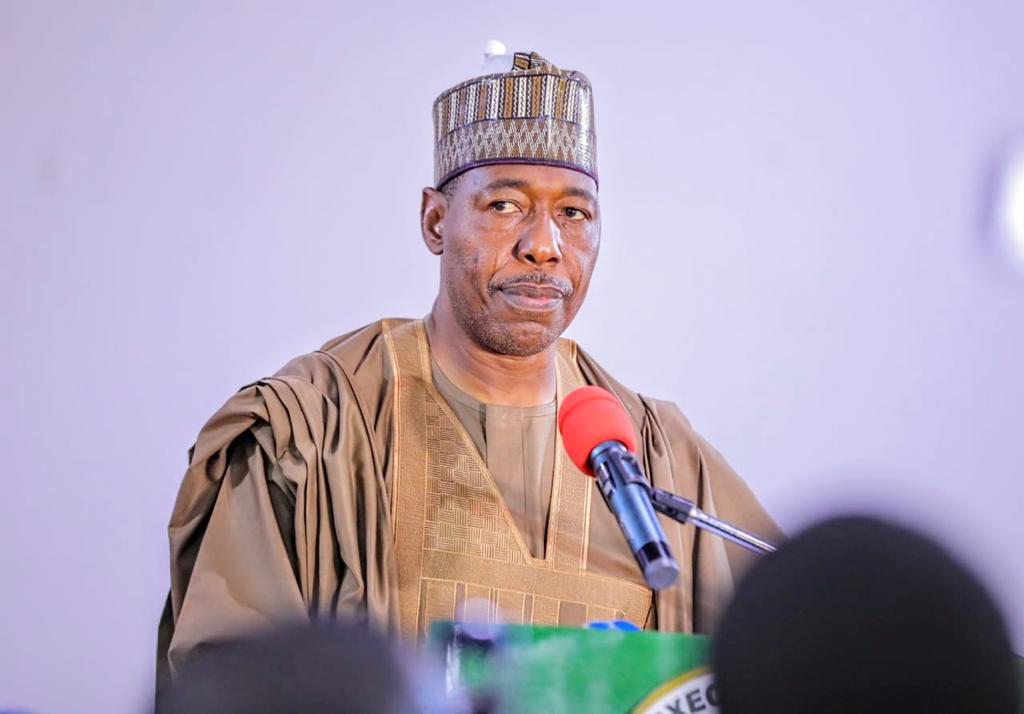The implementation of the N70,000 minimum wage for local government employees in Borno State, Nigeria, faces a significant hurdle: an excessively large workforce. The state government has identified the bloated payroll, comprising approximately 90,000 employees across 27 local government councils, as the primary obstacle preventing the implementation of the wage increase mandated by President Muhammadu Buhari in July 2024. This substantial workforce contrasts sharply with states like Kano, which, despite having a larger population, manages a significantly smaller local government workforce of around 30,000 across 44 local government areas. The sheer scale of the Borno State local government workforce places an immense strain on the councils’ financial resources, hindering their ability to meet the increased salary obligations.
The financial burden of the inflated workforce is evident in the discrepancy between the local governments’ monthly allocations and the projected cost of implementing the new minimum wage. Taking the Maiduguri Metropolitan Council as an example, its monthly allocation from the Federal Government often falls below N700 million. However, the council requires N778 million solely to cover the minimum wage payments for its employees. This leaves a significant deficit, even before accounting for other essential services that the local government must provide, such as public health initiatives, water supply, and security measures. The financial strain imposed by the oversized workforce leaves little room for these crucial public services, creating a difficult balancing act for the local government.
Recognizing the urgency and complexity of the situation, Governor Babagana Zulum has directed the 27 local government chairmen to engage with relevant stakeholders in their respective areas and develop viable solutions to address the salary challenge. The governor emphasized the importance of collaborative problem-solving, urging the chairmen to consult with community leaders, employee representatives, and other key actors to find a path forward that ensures the implementation of the N70,000 minimum wage while also maintaining essential public services. He stressed the need for a comprehensive approach that considers both the welfare of the employees and the financial sustainability of the local governments.
Governor Zulum underscored the state government’s commitment to the minimum wage implementation, emphasizing that state civil servants and primary school teachers are already receiving the N72,000 minimum wage. This highlights the disparity between state-level employees and local government employees, further emphasizing the need for a swift resolution to the salary issue at the local government level. The governor’s commitment to the minimum wage reflects the government’s recognition of the importance of fair compensation for public servants and its dedication to improving the living standards of its workforce.
While urging a solution to the minimum wage implementation, Governor Zulum explicitly cautioned against staff retrenchment as a means of addressing the financial burden. He firmly stated his opposition to any layoffs at the local government level, directing the chairmen to explore alternative mechanisms that would enable the payment of the minimum wage without resorting to job cuts. This directive reflects the government’s commitment to preserving jobs and ensuring the economic security of its citizens. It also underscores the need for a sustainable solution that does not exacerbate unemployment or create further hardship for local government employees.
In acknowledging the challenges faced by the local government workers, Governor Zulum appealed for patience and understanding as the government works diligently to resolve the salary issue. He reiterated the government’s commitment to collaborating closely with the 27 local governments to ensure the timely and effective implementation of the minimum wage. This appeal for patience reflects the government’s recognition of the financial difficulties faced by local government employees awaiting the wage increase and its determination to find a solution that addresses their concerns while maintaining the financial stability of the local government councils.


